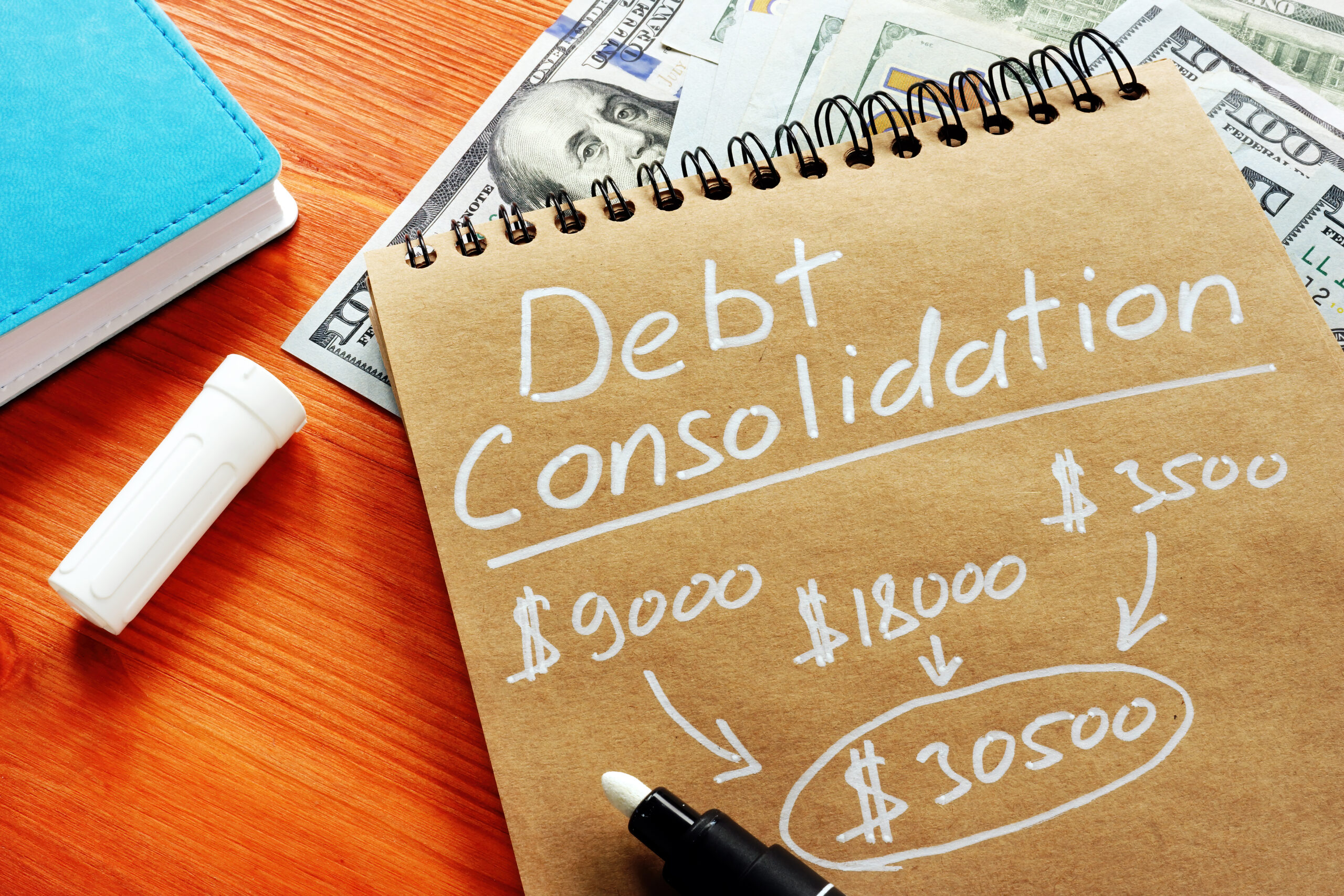
Unraveling the Knot of Multiple Debts: How Credit Card Consolidation Can Help
Feeling overwhelmed by multiple credit card debts?
You’re not alone. In today’s fast-paced world, it’s easy to accumulate debt from various sources. Credit card consolidation could be the solution you’re looking for to regain control of your finances. In this blog, we’ll explain credit card consolidation in layman’s terms and highlight its benefits.
What is Credit Card Consolidation?
Credit card consolidation is a financial strategy that combines all your outstanding credit card balances into one. Instead of making multiple payments to various creditors each month, you only have one payment to manage. This simplification not only helps to streamline your finances but can also lead to lower interest rates, which can save you money over time.
How Does Credit Card Consolidation Work?
Choose a Consolidation Method : There are several ways to consolidate your credit card debt, such as taking out a personal loan, utilizing a balance transfer credit card, or tapping into your home equity.
Apply for a Loan or Balance Transfer : Once you’ve chosen a consolidation method, you’ll need to apply for the loan or balance transfer. Your credit score, income, and other factors will determine your eligibility and the interest rate you receive.
Pay Off Your Credit Cards : Use the funds from your loan or balance transfer to pay off your credit card balances. Now, you’ll only have one payment to manage each month.
Make regular payments: It’s crucial to make regular payments on your consolidated loan. Late or missed payments could damage your credit score and negate the benefits of consolidation.
Make Regular Payments : To maximize the benefits of credit card consolidation, it’s essential to keep up with your new loan or credit card payments. This regular payment will not only help you reduce your debt over time but can also positively impact your credit history.
Resources Available to Assist with Credit Card Consolidation
There are numerous resources available for individuals who want to consolidate their credit card debt. These range from nonprofit organizations offering free advice to services that can directly assist with the consolidation process. Here are some resources to consider:
National Foundation for Credit Counseling (NFCC) : The NFCC is a nonprofit organization that offers financial counseling and education for consumers. They can provide guidance on debt management, including consolidation of credit card debt.
Financial Institutions : Your own bank or credit union is often a great resource. Many financial institutions offer personal loans or balance transfer credit cards that can be used for debt consolidation.
Credit Counseling Agencies : These agencies offer services such as debt management plans, which can help you consolidate your credit card payments into one monthly payment, often with reduced interest rates.
Online Lenders : There are many online lenders who offer personal loans for debt consolidation. Companies like SoFi, Upstart, and LendingClub can provide loans that can be used to consolidate credit card debt. Always ensure to understand the terms and conditions before proceeding.
Debt Consolidation Companies : Companies like Freedom Debt Relief and National Debt Relief specialize in helping individuals consolidate and manage their debt. However, it’s important to do your research and understand the fees involved.
Consumer Financial Protection Bureau (CFPB) : The CFPB provides educational resources about various financial products, including credit cards and debt consolidation loans. It also provides information on your rights as a consumer.
Financial Advisors : A certified financial advisor or a credit counselor can provide personalized advice based on your unique financial situation.
Credit Card Issuers : Some credit card companies offer balance transfer cards with low or 0% introductory APR for a certain period. These cards can help you consolidate your credit card debt.
Remember, while consolidating debt can be a beneficial step towards managing your finances, it’s crucial to address the behaviors that led to the debt in the first place. Tools such as budgeting apps or personal finance books can also be valuable resources to help you build healthier financial habits.
The Benefits of Credit Card Consolidation
Simplified Payments : Juggling multiple credit card payments can be a challenge. By consolidating, you reduce multiple due dates and payment amounts down to a single, more manageable monthly payment.
Lower Interest Rates : Credit card interest rates can be high. With a consolidation loan or balance transfer credit card, you may secure a lower interest rate, potentially saving you a significant amount of money in interest over the repayment period.
Improved Credit Score : If managed correctly, consolidation can improve your credit score. Lower credit utilization (the ratio of your outstanding debt to your available credit) and establishing a consistent history of on-time payments can positively impact your score.
Reduced Financial Stress : Credit card consolidation can provide a structured repayment plan and a clear end date to your credit card debt, reducing the anxiety and stress associated with managing multiple credit card debts.
Conclusion
Credit card consolidation can be a helpful tool for regaining control of your finances. By simplifying your payments and potentially reducing interest rates, you can work towards a more secure financial future. As with any financial decision, it’s essential to carefully consider your options and consult a professional if needed.

Discover the Hardship Center, a valuable resource for understanding financial hardship programs available to the public. Learn how professional assistance can help maximize the benefits of these programs and make a significant difference in consumers’ lives.






